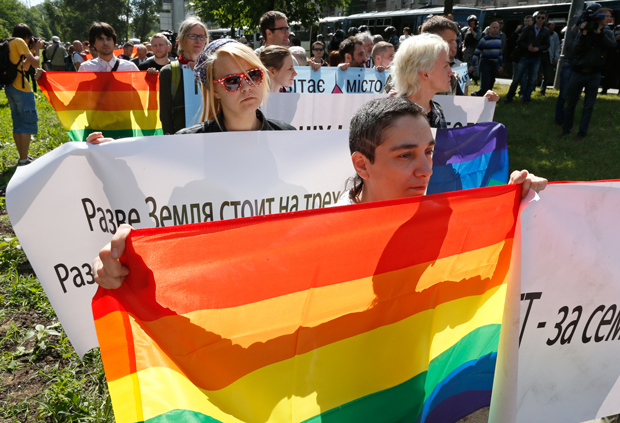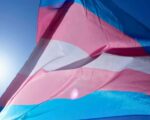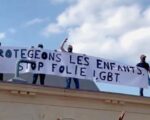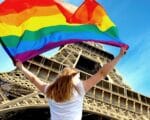>> Ukraine’s second ever gay pride march faces axe
[spacer]
Prévue ce samedi 6 juin, cette nouvelle marche des fiertés sera de nouveau suspendue, à moins que la police ne s’engage à protéger les manifestants : « Sans cette protection, ils se feront tuer. Ce sera un massacre », avertit Bogdan Ovcharuk, d’Amnesty International.
La première, et jusqu’à présent l’unique, manifestation pour les droits des LGBT en Ukraine avait été la cible d’attaques homophobes à Kiev, en 2013.
Environ 1 000 policiers avaient alors protégé une centaine de manifestants et arrêté 13 personnes qui tentaient de les intimider.
Selon Bogdan Ovcharuk, les contre-manifestants, soit environ 1 000 personnes, représentaient un mélange de groupe d’extrême-droite, de fans de football et d’organisations religieuses. Les activistes LGBT ont été protégés et encerclés par des policiers, ce qui devra se passer si la Gay Pride a lieu cette année.
En 2014, la manifestation avait été annulée par le maire de Kiev, Vitali Klitschko qui considérait un tel « évènement de divertissement » inapproprié en raison de la crise politique. De plus, la police n’avait donné aucune garantie de protection pour les activistes LGBT.
Pression de l’UE
Cette année, Amnesty International fait pression sur la mairie et sur la police pour que la Gay Pride soit maintenue. L’ONG a appelé l’Union européenne à exercer une pression politique pour que la manifestation ait bel et bien lieu.
« La première fois, l’évènement avait eu lieu grâce à la pression européenne », a reconnu Bogdan Ovcharuk.
La réunion qui devait avoir lieu jeudi dernier avec la police pour parler de la manifestation de cette année a été repoussée à cette semaine. Le 1er juin était un jour férié en Ukraine, ce qui veut dire que, désormais, le temps est compté pour obtenir les garanties nécessaires.
« Personne ne sait si la Gay Pride aura lieu », a insisté Bogdan Ovcharuk.
Selon lui, le petit groupe de manifestants ne fera pas d’apparition s’ils ne sont pas sous la protection de la police. En revanche, si leur sécurité est garantie, 60 à 100 activistes sont attendus.
« La police peut et doit assurer la sécurité, pas seulement des manifestants LGBT, mais de toutes les personnes qui veulent se réunir de manière pacifique, y compris les contre-manifestants », a-t-il estimé.
L’homophobie est encore largement répandue en Ukraine. Selon un Européen originaire de l’Ouest de l’UE travaillant à Kiev, toute personne tenant la main d’une personne de même sexe en public risque de se faire agresser. Il a déclaré qu’il ne serait pas surpris de voir certaines personnes prendre une journée de congé pour essayer de mettre un terme à la manifestation.
Exemption de visa
Dans le cadre des négociations avec l’UE sur le régime d’exemption de visa, l’Ukraine doit adopter certaines lois. La garantie d’un traitement équitable sur le lieu du travail pour les personnes LGBT fait partie des mesures exigées par l’UE.
« À ma connaissance », a déclaré Bogdan Ovcharuk, « c’est la seule loi qui n’a pas été soutenue par le parlement ».
Même si l’homosexualité est légale en Ukraine, en 2012 les députés ont adopté en première lecture un projet de loi visant à interdire la promotion de l’homosexualité.
En mai, la Commission européenne a déclaré qu’un rapport sur l’Ukraine indiquait que le pays se conformait de mieux en mieux aux normes européennes, nécessaires pour permettre à ses citoyens d’entrer dans des États de l’UE pour des courtes périodes et sans visa.
« L’évaluation montre que, malgré les circonstances exceptionnelles dans lesquelles se trouve l’Ukraine actuellement, les progrès réalisés […] sont notables », a affirmé la Commission dans un communiqué.
[spacer]
>> The second gay pride demonstration in Ukraine’s history will be cancelled for the second time in as many years, unless promises of police protection are made for the marchers before this Saturday (6 June).
EurActiv has learned that the planned protest in Kyiv could still be forbidden by court order, if Mayor Vitali Klitshko applies for one.
But it is up to the Kyiv Police to offer security to lesbian, gay, bisexual and transgender (LGBT) rights activists, who want to demonstrate on 6 June.
“Without this protection, they will be killed. It will be a massacre,” Bogdan Ovcharuk, of Amnesty International, told EurActiv in Kyiv.
The first, and so far only, protest for lesbian, gay, bisexual and transgender (LGBT) rights in Ukraine was targeted by far larger homophobic mobs in Kyiv in 2013.
About 100 protestors were shielded by an estimated 1,000 cops, who arrested 13 people for trying to break up the meeting.
Ovcharuk said the counter-protestors were a mix of about 1,000 far-right groups, football fans and religious organisations. LGBT activists were bussed in under protection and circled by officers to protect them, as they would have to be again this year, if the march goes ahead.
Last year’s march was cancelled after Kyiv mayor Vitali Klitschko said that the crisis in Ukraine meant such “entertainment events” were inappropriate. There were also no guarantees of police protection for LGBT activists.
Amnesty International is lobbying both the city administration and the police to back the march. It called on the European Union to increase political pressure to ensure it goes ahead.
“The first event was only held because of EU pressure,” said Ovcharuk.
A meeting last Thursday with officers to discuss this year’s march was postponed until this week. Today, (Monday 1 June), is a bank holiday in Ukraine, meaning time is running out for the guarantees to be delivered.
“Nobody knows if this is going to go ahead,” said Ovcharuk, when he met EurActiv in Kyiv on Friday.
Ovcharuk told EurActiv that the small group of demonstrators would not turn up without police protection. He expected 60-100 protestors if security was guaranteed.
“The police is able and it must provide security, not just for LGBT protestors, but everybody who wants to peacefully gather, including the counter-protestors,” he said.
Homophobia in Ukraine remains widespread. One Western European working in Kyiv said anyone of the same sex holding hands in public faced being attacked. He joked he would not be surprised if people took time off work to try and break up the demonstration.
As part of Ukraine’s negotiations with the EU on a visa-free regime, it must adopt certain laws. Among them is legislation guaranteeing equal treatment for LGBT people in the workplace.
“As far as I know,” said Ovcharuk, “that is the only law that has not been supported by the parliament ».
Although homosexuality is legal in Ukraine, in 2012, on first reading, lawmakers adopted a draft law to make the promotion of homosexuality a criminal offence.
In May, the European Commission said a review of Ukraine showed distinct progress in meeting the standards required to allow citizens to enter EU nations for short stays without needing a visa.
« The assessment found that, despite the exceptional circumstances that Ukraine currently faces, the progress achieved […] has been noteworthy, » the Commission said in a statement.


















